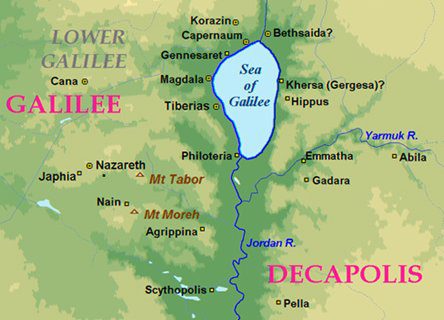
I was recently reminded of the showcasing of John Lennon’s atheist anthem “Imagine,” complete with the London Symphony Orchestra and the Liverpool Philharmonic Youth Choir, during the closing ceremonies of the 2012 Summer Olympic Games. It surprised and puzzled me.
Not to mention the fact that that ghastly white death-mask-like portrait of Lennon in the center of the Olympic stadium was rather repulsive — and especially so when it broke up (decomposed?) at the end of the song. That’s a separate issue.
Don’t get me wrong: I’ve been a wildly enthusiastic Beatles fan for almost all of my life — although, sadly, despite active attendance at rock concerts featuring such Lennon-contemporary performers as the Byrds, Iron Butterfly, B. B. King, Cream, and the Rolling Stones, I never managed to see the Beatles in a live performance — and, of the four, John Lennon was far and away my favorite. (I was in Cairo, Egypt, when I heard the shocking news of his death, and it felt as if Mark David Chapman had also murdered my childhood.)
But “Imagine” is a rather silly song, and, surely, to at least a substantial proportion of those who watched and even performed in the Olympics, a potentially offensive one:
Imagine there’s no heaven.
It’s easy if you try.
No hell below us,
Above us only sky.
Imagine all the people
Living for today.
Imagine there’s no countries.
It isn’t hard to do.
Nothing to kill or die for,
And no religion, too.
Imagine all the poeple
Living life in peace . . .
You may say I’m a dreamer.
But I’m not the only one.
I hope someday you’ll join us,
And the world will be as one.
Imagine no possessions.
I wonder if you can.
No need for greed or hunger,
A brotherhood of man.
Imagine all the people
Sharing all the world . . .
You may say I’m a dreamer,
But I’m not the only one.
I hope someday you’ll join us,
And the world will live as one.
I mean, really. If religion would only disappear, we’d all live in peace, love, and brotherhood? Check out the historical record of such officially atheistic regimes as Stalin’s Russia, Mao’s China, Pol Pot’s Cambodia, and Castro’s Cuba, or, for that matter, of Robespierre’s revolutionary France, and try telling us that with a straight face. Hitler represents a more complex (and perhaps altogether incoherent) case, but certainly his dismissal of humankind as “a ridiculous cosmic bacterium” (ein lächerliches kosmisches Bakterium) doesn’t exactly scream orthodox Christianity, or even theism.
And does the abolition of private property seem even remotely likely to eliminate hunger? Tell that to the average North Korean. Try telling it to anybody who knows the history of economic performance — and of food production — in the Soviet Union or Marxist China or Communist Cuba. (See this famous satellite photograph of the Korean Peninsula by night.) Market capitalism has done more to eliminate poverty and starvation than (much as I admire their sentiments) thousands of rock concerts protesting world hunger will ever do. If people want to put an end to hunger, one of the first things they should do (though not the last) is to get rid of the governments that have, over the past century, created or vastly worsened lethal famines in places like Ukraine, Ethiopia, and the southern Sudan.
And it seems . . . well, rather dull. Nothing worth dying for? No great loyalties or affections? Living only “for today”? No long-term goals? No aspirations or ambitions? No dreams? No great achievements against the odds? (Did all those Olympic athletes there in the stadium merely wander aimlessly into the Games, unmotivated, untrained, unpracticed?) “Above us only sky”?
Zzzzzzzz. Spare me.
Posted from Tiberias, Israel










